Hunt for victims after Japan quake triggers tsunami waves, causes ‘extensive’ damage
At least 62 people have died and more than 300 have been injured in Japan after a series of earthquakes wreaked havoc. See the video and photos.
World
Don't miss out on the headlines from World. Followed categories will be added to My News.
Japanese rescuers scrambled to search for survivors on Wednesday as authorities warned of landslides from heavy rain after a powerful earthquake that killed at least 62 people.
The 7.5-magnitude quake on January 1 that rattled Ishikawa prefecture on the main island of Honshu triggered tsunami waves more than a metre high, sparked a major fire and tore apart roads.
The Noto Peninsula on the Sea of Japan coast was most severely hit, with buildings ravaged by fire and houses flattened in several towns, including Wajima and Suzu, as shown by before-and-after satellite images.
The regional government announced on Wednesday that 62 people had been confirmed dead and more than 300 injured, 20 of them seriously.
The toll was expected to climb as rescuers battle aftershocks and poor weather to comb through rubble.
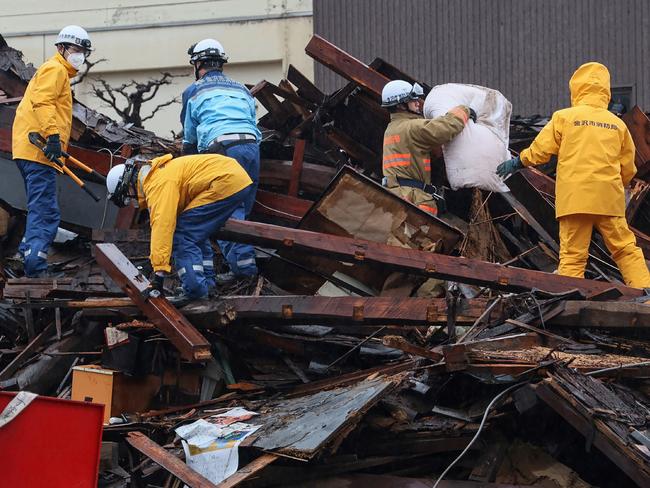
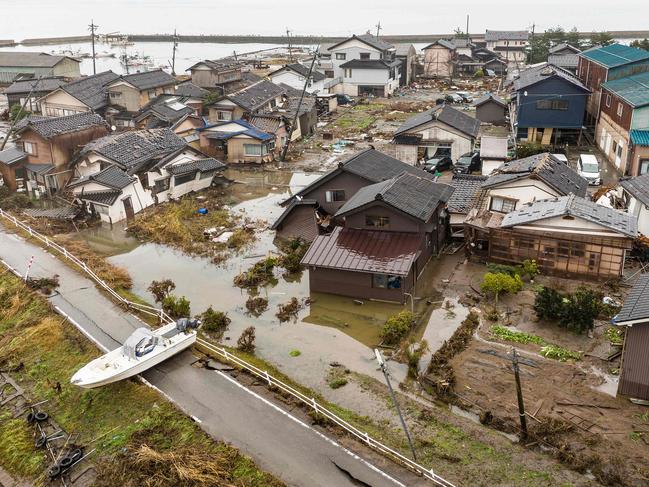
More than 31,800 people were in shelters, and at least 200 buildings had collapsed, with the number expected to rise, the government said.
“More than 40 hours have passed since the disaster. We have received a lot of information about people in need of rescue and there are people waiting for help,” Prime Minister Fumio Kishida said Wednesday after an emergency task force meeting.
The number of military personnel sent to the area on rescue missions has been doubled, with more rescue dogs also deployed, he added.
The operation was given extra urgency as the Japan Meteorological Agency (JMA) issued a heavy rain warning in the region, advising people to be on alert for landslides until Wednesday evening.
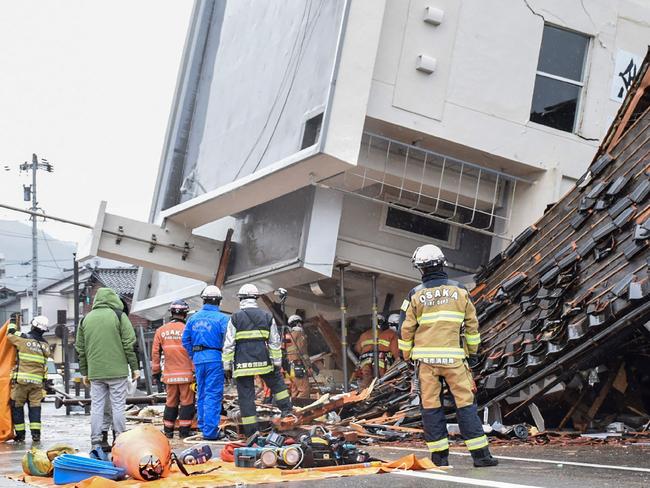
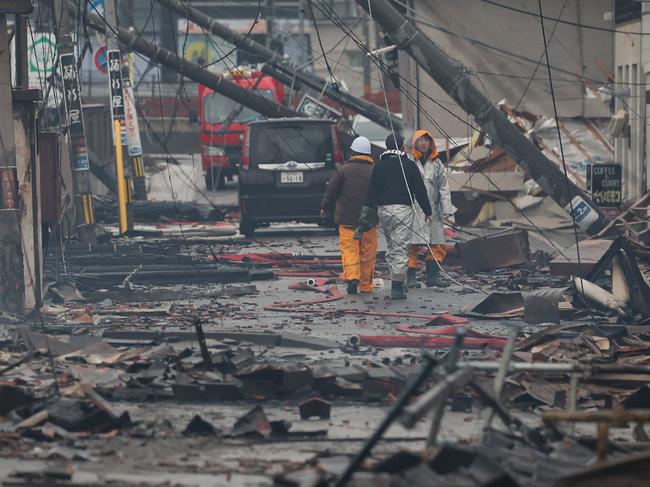
There were “almost no houses standing” in one town in the Suzu area, said municipal mayor Masuhiro Izumiya.
“About 90 percent of the houses (in that town) are completely or almost completely destroyed... the situation is really catastrophic,” he said, according to broadcaster TBS.
Around 32,800 households were still without power in Ishikawa prefecture, the local utility said. Many cities were without running water.
Plenty of food and emergency supplies have arrived in the region, but blocked or damaged roads have slowed their delivery to communities, regional authorities said.
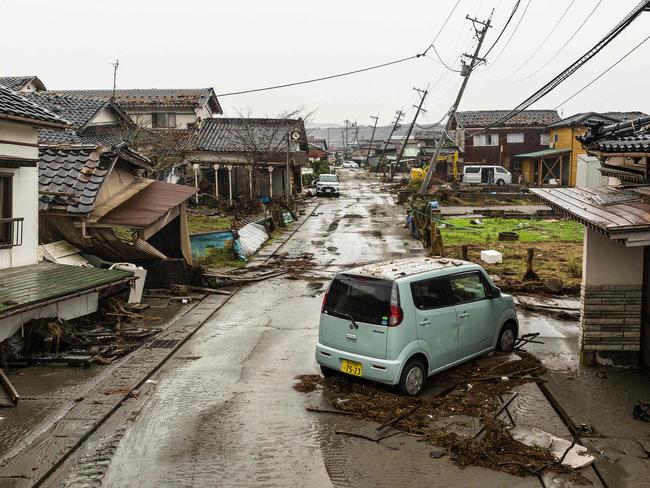
Yuko Okuda, 30, was taking shelter at an evacuation centre at the municipal office of the town of Anamizu, down the coast from Suzu.
“I’m here because our lifelines have been cut off. Electricity, water and gas -- everything. And as aftershocks keep happening, our house could collapse at any time,” she told AFP.
“The cold and the lack of food are my biggest concerns now,” she said, explaining that her son is allergic to eggs and so could not eat the food provided.
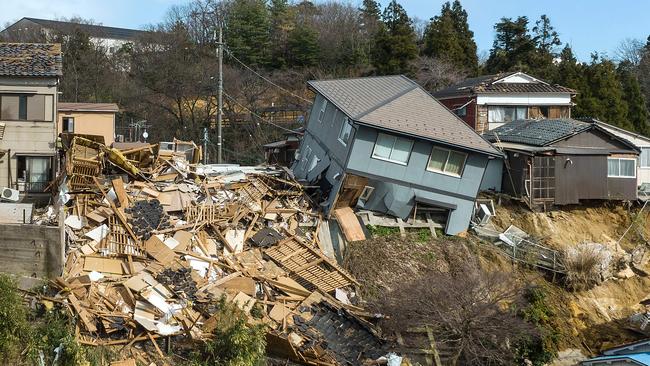
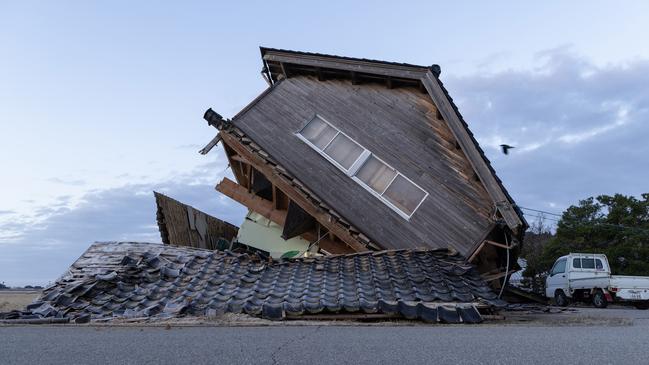
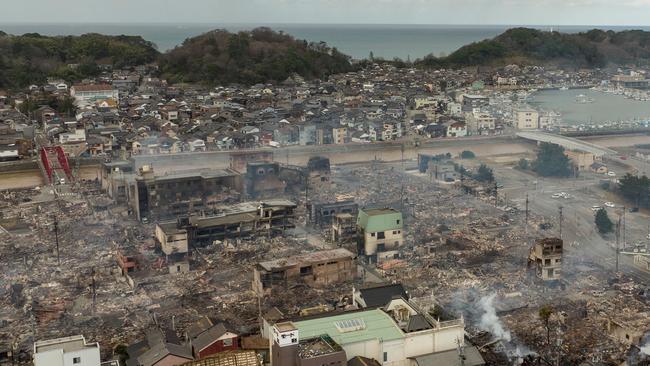
The major quake caused “extensive” damage, Prime Minister Fumio Kishida said after attending a disaster response meeting on Tuesday.
“Very extensive damage has been confirmed, including numerous casualties, building collapses and fires,” Prime Minister Fumio Kishida said after a disaster response meeting.
“We have to race against time to search for and rescue victims of the disaster.”
Aerial news footage showed devastation from a major fire at the port, where a seven-storey building collapsed.
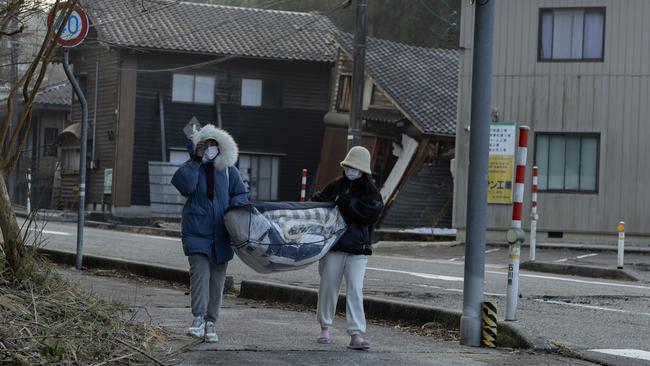
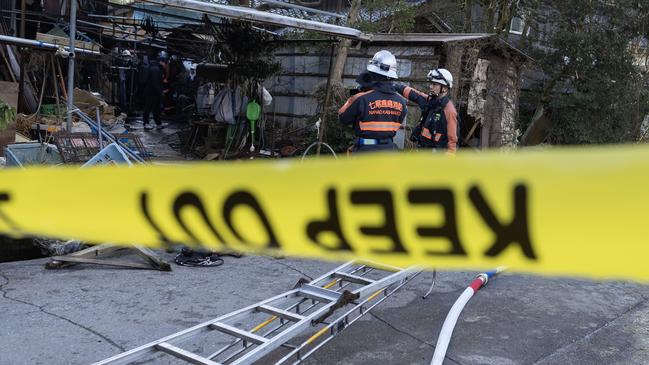
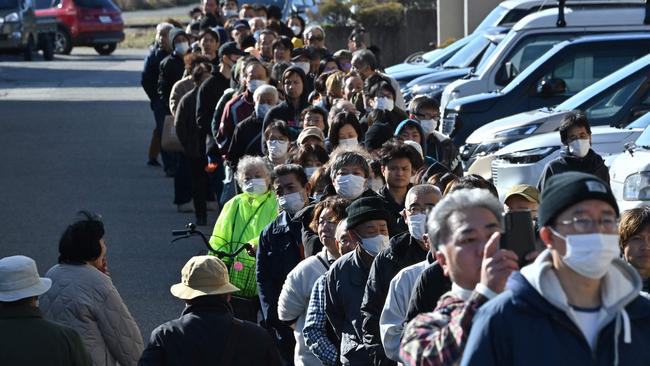
More than 35 aftershocks greater than a magnitude of 2.5 have struck near the epicenter of the earthquake in the 24 hours since Monday, according to the United States Geological Survey.
Seismologists warned the aftershocks could last for months.
It comes as the country lifted all the tsunami warnings that were in place, but small tidal changes are still possible, a meteorological agency official said.
The worst affected areas of Toyama, Ishikawa and Niigata are now at risk of landslides and collapsing houses as aftershocks are set to continue for the next few days.
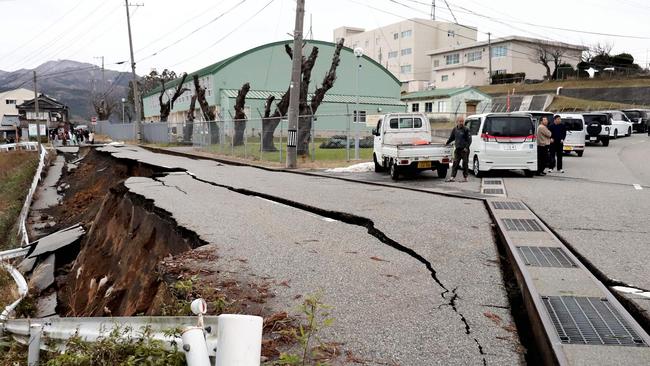
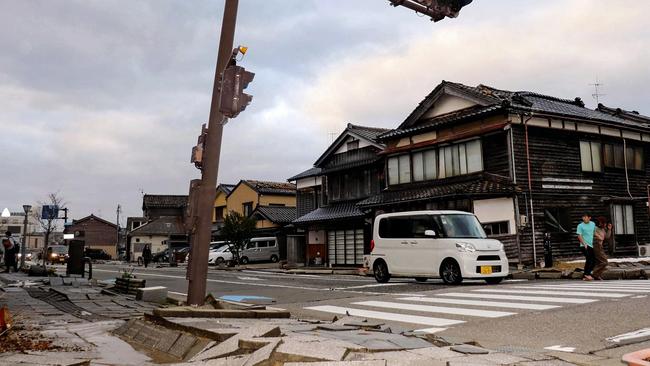
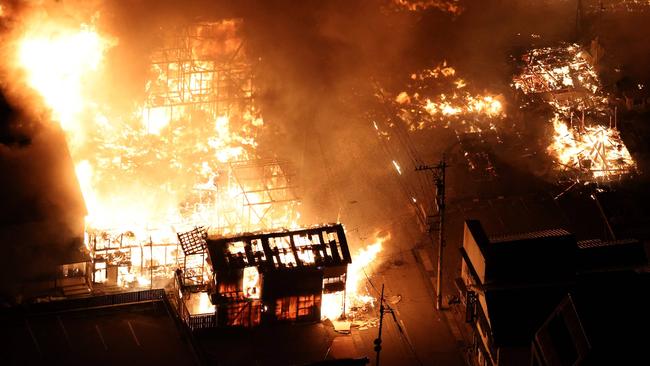
Japan has been hit by 155 earthquakes since Monday, the Japan Meteorological Office said.
Most of the quakes had a magnitude greater than 3 and while the strength has gradually moderated, six strong jolts were still felt early Tuesday.
The after-effects of the major earthquake were felt in North Korea, South Korea and Russia’s Far East, which have all issued tsunami warnings to local populations.
Earlier, television channels interrupted normal services with special programming, including a message from Mr Kishida, who urged people in vulnerable areas to “evacuate as soon as possible” to higher ground.
“We realise your home, your belongings are all precious to you, but your lives are important above everything else! Run to the highest ground possible,” an alarmed presenter on broadcaster NHK told viewers.
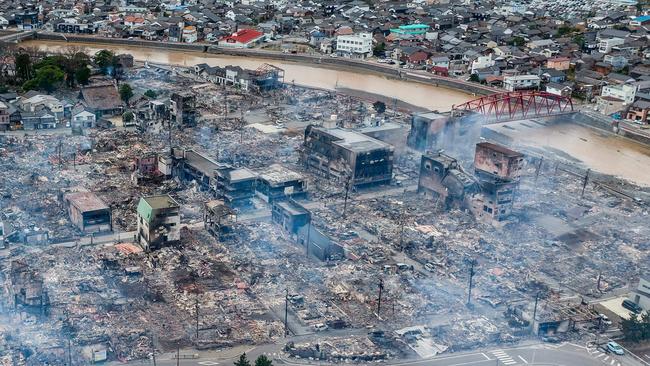
Waves at least 1.2 metres high hit the port of Wajima, and a series of smaller tsunamis were reported elsewhere, including as far away as the northern island of Hokkaido.
Officials in Ishikawa prefecture confirmed four fatalities early Tuesday, according to the Kyodo news agency.
#JAPAN has been hit by a massive 7.6 #EARTHQUAKE!
— Tansu Yegen (@TansuYegen) January 1, 2024
Orders to evacuate have been issued, along with tsunami warnings.
I hope everybody is safe🙠pic.twitter.com/hZrLPk5a3Y
The government said it was still assessing the extent of damage from the quake, which shook apartments in the capital Tokyo some 300 kilometres away.
Tens of thousands of people were ordered to evacuate, according to the country’s fire and disaster management agency, cited by Kyodo. About 1,000 people were staying at a military base, the defence ministry said.
Images on social media showed cars and houses in Ishikawa shaking violently and terrified people cowering in shops and train stations. Houses collapsed and huge cracks appeared in roads.
“I have never experienced anything like this before, it was scary. I went out right away but the ground was shaking,” an elderly man told broadcaster NHK.
“We are in a horrible situation. Please come and help us,” said one person in a video shared on X, formerly Twitter, showing several badly damaged houses.
A major fire in Wajima engulfed a row of houses, video footage showed, with people being evacuated in the dark, some with blankets and others carrying babies.
“There is a large fire. We cannot immediately tell how many houses are affected by it,” a firefighter with the Wajima Fire Department told AFP.
Fire engines struggled to reach the scene due to damaged roads and other obstacles, he said.
The department was swamped with calls, with “numerous” reports of people injured and trapped inside collapsed buildings, he added.
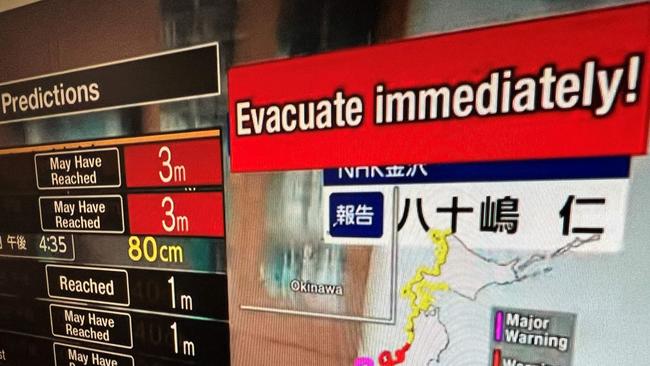
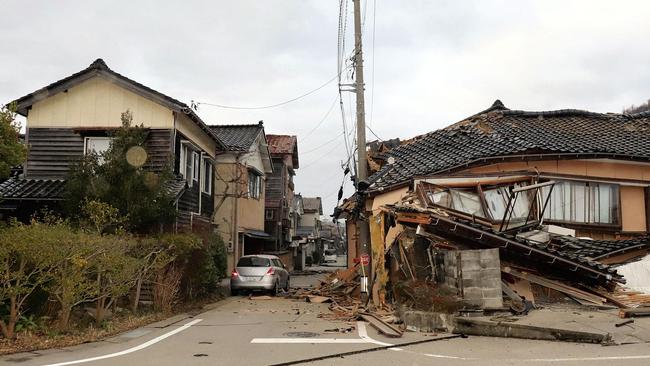
Around 33,500 households around the epicentre, in Toyama, Ishikawa and Niigata prefectures, were without power, local utilities said.
Many houses collapsed in the city of Suzu, reports said.
In Washington, US President Joe Biden was briefed on the quake, and offered Japan “any necessary assistance” to cope with the aftermath.
Several major highways were closed around the epicentre, Japan’s road operator said, and bullet train services from Tokyo were also suspended.
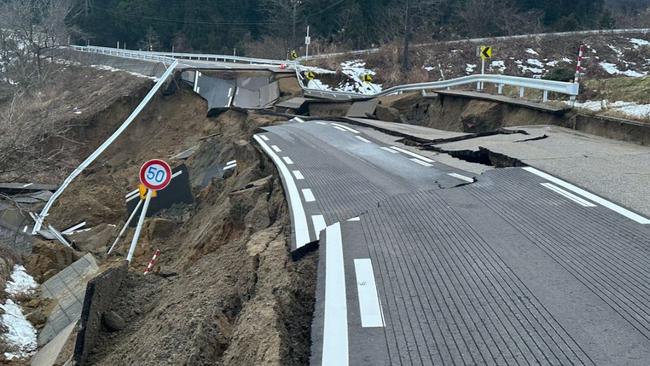
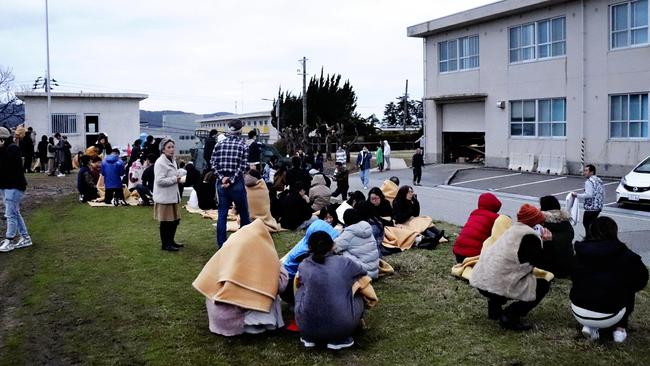
Flights and mobile phone coverage were reportedly disrupted while many convenience stores were shut.
Defence Minister Minoru Kihara said 1,000 military personnel were preparing to go to the region, while 8,500 others were on standby. Around 20 military aircraft were dispatched to survey the damage.
The Japan Meteorological Agency warned local residents of possible further quakes during the coming week or so, particularly within the next two to three days.
Japan experiences hundreds of earthquakes every year and the vast majority cause no damage.
The country has strict regulations intended to ensure buildings can withstand strong quakes and routinely holds emergency drills.
But the country is haunted by the memory of a massive 9.0-magnitude undersea quake off northeastern Japan in March 2011, which triggered a tsunami that left around 18,500 people dead or missing.
The 2011 tsunami also sent three reactors into meltdown at the Fukushima nuclear plant, causing Japan’s worst post-war disaster and the most serious nuclear accident since Chernobyl.
More Coverage
Originally published as Hunt for victims after Japan quake triggers tsunami waves, causes ‘extensive’ damage





